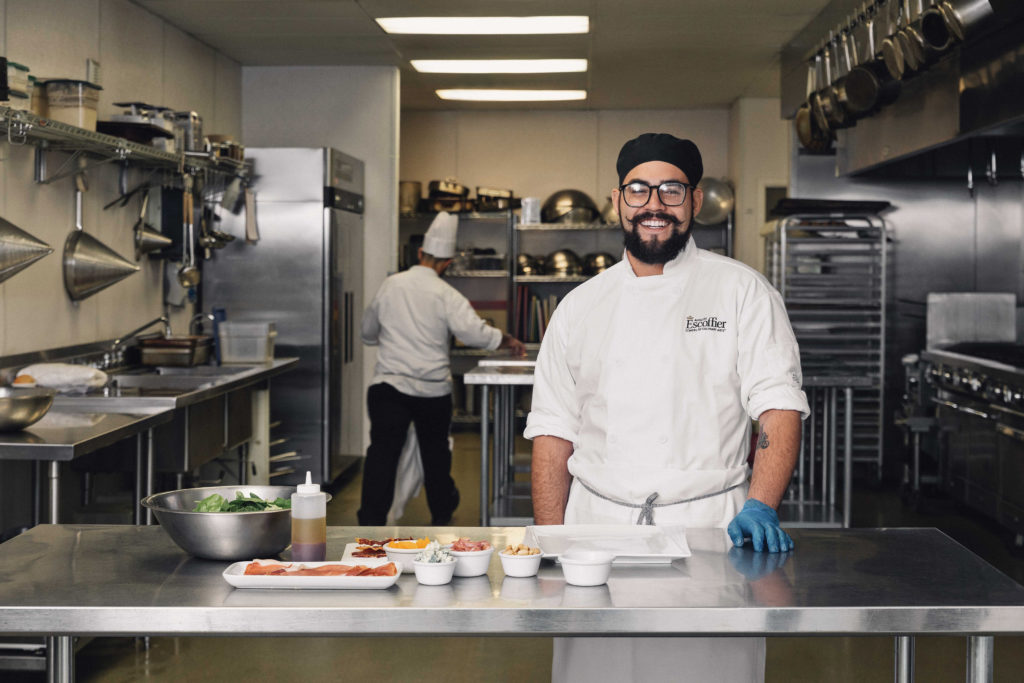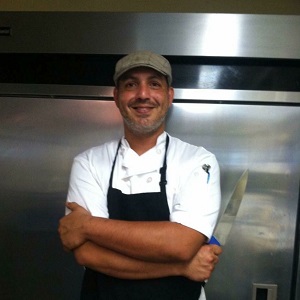Over the past decade there was a massive shortage of trained chefs and cooks, which made life difficult for restaurants and other food service operators. While business was booming, there just weren’t enough trained leaders in the kitchen.
And then COVID-19 happened. Suddenly, restaurants were in crisis, having to temporarily shut down, reduce capacity, or completely change business models. As business slowed, hiring slowed or halted altogether.
What’s next? Will hiring continue to be slow, or will the long-term trend of “not enough trained chefs” pick up in the post-COVID world? Let’s take a look at the evidence and find out.
The Great Chef Shortage of the Past Decade
In the last ten years, the shortage of qualified chefs in the United States reached near-crisis levels. Eating out became something of a national pastime. Consumers began spending nearly half of their monthly food budget on eating out versus buying groceries.
Not only was there a greater interest in food, there was less time for cooking at home. Work hours were increasing and in many homes, both parents were working.
In early 2020, before the pandemic descended upon the world, The National Restaurant Association reported that there were more than a million restaurant establishments and predicted 1.6 million new restaurant jobs by 2030.
And Then COVID-19 Changed Everything
Any way you look at it, COVID-19 was brutal for restaurants, leading to closures and cutbacks in hiring.
The U.S. Bureau of Labor Statistics reports that in 2019, there were 3.5 million people employed as chefs, cooks, and food preparation workers, and nearly another million people supervising and managing food service operations. During the middle of the COVID crisis, job openings plunged by 16% from 840,000 in October 2019 to 700,000 in October, 2020…and that was an improvement over previous months.
Yet job opportunities are still strong in the right circles, especially for job candidates who are trained with the right skills.
For example, Auguste Escoffier School of Culinary Arts Employer Partner Sodexo is currently hiring for hundreds of chef and cook positions. Or search for “chef and cook” jobs on Indeed.com, which recently brought up 2,896 results. Perhaps all this means is that the industry is experiencing a slight pause in the chef shortage, but we can expect that it will be a brief one.
“I hire Escoffier graduates because they come to us ready to hit the ground running….Escoffier graduates come to us with ideas, with understanding of the business, and with a passion around making that business successful.”
Mary Ann Mathieu, Senior Recruiter, Sodexo
According to a Bureau of Labor Analysis, in every previous crisis—including 2001 and 2008—restaurant jobs recovered and eventually surpassed previous levels. One could make the argument, in fact, that this rebound will be even stronger, due to pent-up demand from consumers, literally hungry to eat out again and be more social.
What Employers Want Now
But for the moment, employers are more discerning in who they hire. COVID restrictions made it difficult for restaurants to stay profitable. The old way of doing things won’t work any longer. Restaurants are demanding new skills and adopting new strategies to keep their doors open.
For example, The National Restaurant Association reported that take-out orders rose 67% in March 2020, and 27% added a third-party delivery service. “As a result, 71% of operators say off-premises sales currently represent a higher proportion of their total business than they did prior to the COVID-19 outbreak.”
Preparing food to go can be more time-consuming, and requires creative ways to package so that cold foods stay cold and hot foods stay hot. Wearing masks in hot kitchens only adds to the stress.
Additionally, restaurants that have stayed open need to adhere to increased sanitation and cleaning guidelines, be ready to shut down again at any moment, and have to figure out how to make a profit despite capacity restrictions. That means hiring staff that understand the basics of food service finances, hiring, training, and supervising others, creative marketing and business development, and more.
The bottom line: Food service employers are hiring chefs and cooks with formal culinary training and fundamental business skills.

What You Can Do To Prepare for the Rebound
People who love food and delighting others with their creations can find a long and rewarding career in the culinary arts.
As we’ve already shown, employers are still hiring. There’s always a shortage of top-tier, well-trained cooks and chefs. Escoffier, in fact, not only helps to prepare its graduates to go get that first position, it teaches the leadership skills required for faster promotion, and offers job placement assistance.
“I’ve gained a better understanding of how to execute a variety of techniques, as well as how to manage a kitchen. I went from washing dishes and cleaning a commercial kitchen to managing my own within a two-year span. Escoffier has given me the culinary and business tools, resources, knowledge, and self-confidence I need in order to make my dream a reality!”
Mitchell Rodriguez, Online Culinary Arts Graduate and Sous Chef, Holiday Retirement
The restaurants that are surviving—and thriving—during the COVID-19 pandemic are doing so by adapting and paying meticulous attention to cost control. Meeting these demands could mean hiring chefs and cooks with the right training.
Want to get the right training? Get our plan for a degree or diploma from culinary school, pastry school, and more!
Those who are taking the opportunity today to be “the right kind of hire” could position themselves as the leaders who are hiring the chefs and cooks in the great chef shortage of tomorrow.
If you enjoyed this article, then read these next:


 “I hire Escoffier graduates because they come to us ready to hit the ground running….Escoffier graduates come to us with ideas, with understanding of the business, and with a passion around making that business successful.”
“I hire Escoffier graduates because they come to us ready to hit the ground running….Escoffier graduates come to us with ideas, with understanding of the business, and with a passion around making that business successful.” “I’ve gained a better understanding of how to execute a variety of techniques, as well as how to manage a kitchen. I went from washing dishes and cleaning a commercial kitchen to managing my own within a two-year span. Escoffier has given me the culinary and business tools, resources, knowledge, and self-confidence I need in order to make my dream a reality!”
“I’ve gained a better understanding of how to execute a variety of techniques, as well as how to manage a kitchen. I went from washing dishes and cleaning a commercial kitchen to managing my own within a two-year span. Escoffier has given me the culinary and business tools, resources, knowledge, and self-confidence I need in order to make my dream a reality!”